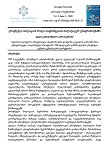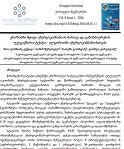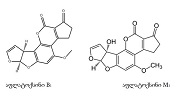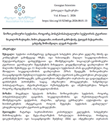Social Satire in Oscar Wilde's Fairy Tales
Downloads
This article studies the fairy tales by Oscar Wilde from the perspective of social satire employed by the author to expose the vices of his contemporary Victorian Society. The texts used as empirical material for the study are the fairy tales from “The Happy Prince and Other Tales.” They fall under the category of literary fairy tales and possess all the features characteristic of this literary genre. The plots of Oscar Wilde’s fairy tales are not always original, but their author’s individual, exquisite style, prolific imagination, and ample word repertoire make them unique. Wilde’s fairy tales as well as other works are the embodiment of his aesthetic principle “art for art’s sake”, considering beauty as art’s main pursuit. The magic and beauty in Wilde’s fairy tales are accompanied by severe criticism of Victorian morality with its hypocrisy, materialism, snobbishness, arrogance, idleness, uniformity, narrow-mindedness, and selfishness. The criticism is expressed with the help of allegory, irony, paradox, and other literary devices.
Downloads
• უაილდი ო., „ბროწეულის სახლი“, თარგმნეს ინგლისურიდან ქეთევან კანდელაკმა და ნათელა ჩიგოგიძემ. საბჭოთა მწერალი, თბილისი 1960.
• ფანჯიკიძე დ., „თარგმანის თეორია და პრაქტიკა“, „განათლება“, თბილისი, 1988.
• ჭილაია რ., „ლიტერატურათმცოდნეობის ცნებები“, თბილისი, 1984.
• Wilde, O., Fairy Tales by Oscar Wilde, Moscow, Progress Publishers 1979.
• Ransome, A. (2011). Oscar Wilde: A critical study. https://www.gutenberg.org/files/36017/36017-h/36017-h.htm
• Wilde O. (1979). Fairy tales. Progress Publishers. (Original work published 1888)
• Wilde, O. (2016). The decay of lying. https://www.berfrois.com/2016/0Wilde’s 8/oscar-wilde-arts-rough-material/ (Original work published 1891)
• Wilde O. (2018). The Fairy Tales of Oscar Wilde, Arion Press
• Wilde O. (2021). The happy prince and other tales. https://www.gutenberg.org/files/902/902-h/902-h.htm (Original work published 1888)
Copyright (c) 2024 Georgian Scientists

This work is licensed under a Creative Commons Attribution-NonCommercial-NoDerivatives 4.0 International License.


























































































































































































































